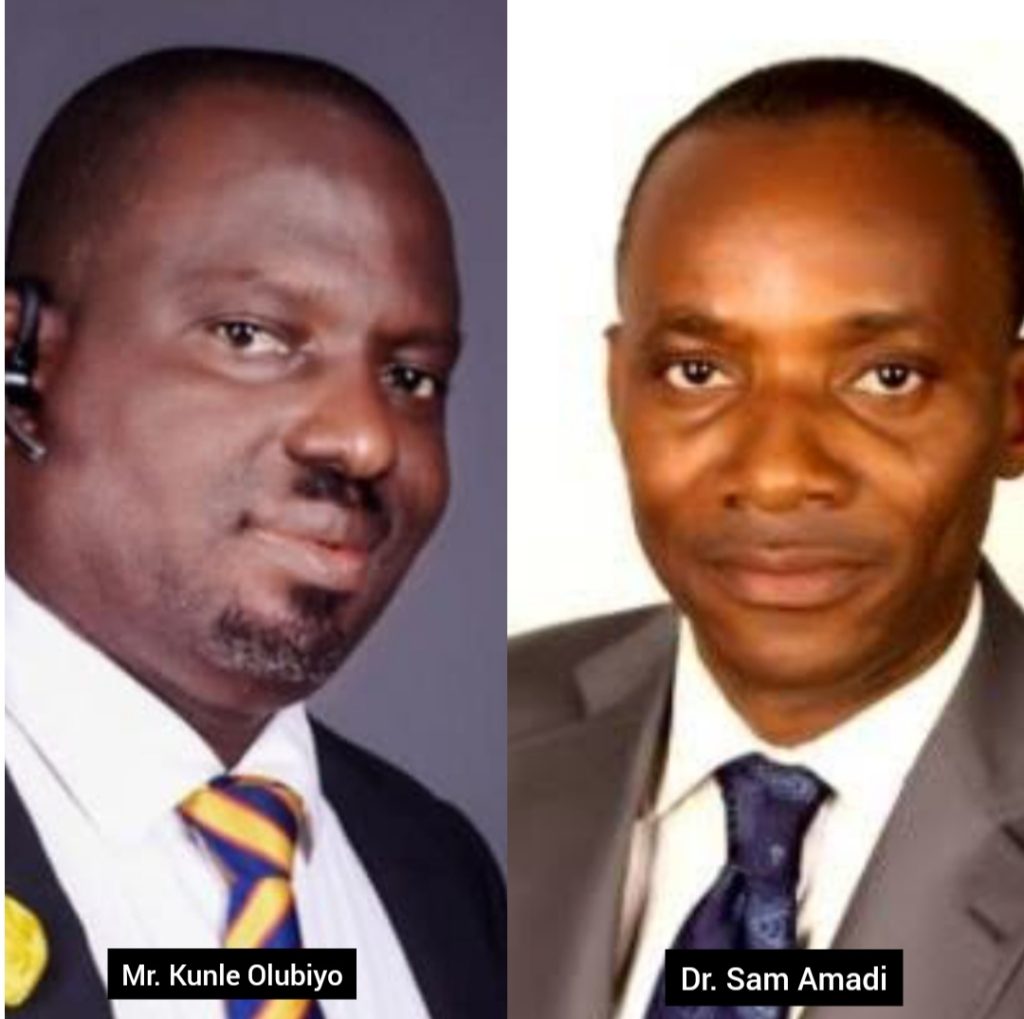
Dr. Sam Amadi is the former Chairman and Chief Executive Officer(CEO) of Nigerian Electricity Regulatory Commission(NERC) and the President of Nigerian Consumer Protection Network, Mr. Kunle Olubiyo were guests on Arise TV where they shared their thoughts on the state power in Nigeria under President Bola Ahmed Tinubu. Amadi explains why Nigeria cannot run a cost-reflective tariff now as Olubiyo drops insight on how power consumers are protected on their network. Enjoy their flow.
Why is it that Siemen’s power deal in Egypt is working but Nigeria’s own is always left hanging?

Very good question, I must say and the answer is pretty simple. We have always believed that the answer to our problem is privatisation which is good. You raised a good question, the same question we ask, why is it that the Nigerian police does well in UN peacekeeping, sometime they come first but here in Nigeria they don’t ever do well? So the answer is in the political economy.
Look, when they were privatizing power sector, I was seen as the bad boy because I raised questions. At a particular meeting, all the ministers and directors of ministry of power, everybody said remove Sam Amadi. I said privatization requires dealing with a lot of problem for it to work. The private sector is great but it relies on public sector, that is, first reform and not corrupt focused. For example, you have a TCN, I saw a report talking about the TCN, the national transport system for power, it is a company licensed by NERC, it is supposed to have its board of directors well constituted. Until I left the Federal Government never properly constituted TCN board.

In fact, at a point we raised issue about the board. The simple answer is this, you can get Siemens to work here but Siemens will work according to your public sector setup. There’s a project management framework, they drop the equipment that you are procuring, they probably bring their experts to help guide you but you are going to follow your timeline for delivery, you will also show that you care about the outcome, not just the rent and who is going to get that, you will also show that you really will put the best guys to do the job, so if you do not put them it becomes a problem.
I understand the dark heart of working with countries that do not want to work, they don’t have the capacity to interfere with your internal affairs, they don’t have the capacity or ought not to tell you who you should put on the table as the MD of that institution or the engineers that are going to oversight the function, I remember very well when we were with Okonjo-Iweala during the former government in a meeting with the former British prime minister, he made a point and that’s what I keep saying.
I give you an example, when I was the regulator, in a meeting with Prof Barth Nnaji and the president, they were talking about putting ₦5 billion somewhere and I said sir, this is a regulated entity and what that means is that you do first a prudence check. Is this project necessary? Is it prudent financially? That’s the idea of regulation. You just can’t come and say in a licence entity that somebody regulate, we need N5 billion to fix something. Fix what? Pass it through the regulator first. This is what is happening in Egypt, United Kingdom and other places. You know what? They agreed with me and we finished the meeting, when that money was invested, I didn’t know, they did the exact thing I said wasn’t the proper thing. Yes, you can pretend and go to London and get Siemens, Julius Berger or anybody to do the work but if you don’t want to run government in the most simple procedural rule, based on competence and performance, none will work, it’s not rocket science, its simple, the public sector must first work before the private sector can work.
Mr. Kunle Olubiyo
I align with Dr. Sam Amadi who is now back with us on this side for advocacy and right activism, you know he was on the other side, we lent him out and now he is back. Having said that, you are aware that it is a public knowledge in Abuja.
Quote me, for you to be promoted from the rank of assistant director to deputy director you must play the Nigerian factor, from deputy director to director you must play the Nigerian factor, for you to be promoted to a permanent secretary or director of permanent secretaries there must be the Nigerian factor. When you say the human element, you are talking about corruption, now you have the PIDs that Nigerians put a caveat.
Nigerians that were entrusted with public trust, they work according to the dictate of foreigners. Very recently there was a nolle prosequi issued by the federal government on any case in Italy. Are we saying that the issues that led to Nigeria filling an action in court are no longer there? It’s the Nigerian factor and regulatory capture.
Now, the Siemens project did not work here because you have what you call the global best practices. Like Dr. Amadi has said earlier, Siemens power project was not negotiated by experts. You have the late chief of staff of blessed memory, then the former minister carrying his briefcase behind him, he was the lead negotiator. It was a monopoly equipment supply deal and it was not subjected to international global competitive index for monopoly. Now the Siemens project or whatever it is called, you remember that sometime ago Siemens were blacklisted by the Federal Executive Council for short-changing Nigeria and the same Siemens without vacating that blacklist in Nigeria, in Egypt, were able to wrap up power by an additional 20,000 to 30,000 because they were free of all these encumbrances.
Now, if you have a sector that does not have regards for Key Performance Indictors,KPIs, benchmarks, procurement procedure, whatever that is being done, go to Siemens or wherever, when it comes to Nigerian environment where corruption is the language, rent seeking, then it will not work. The Siemens that continues to shift the goal post, they say the Ukraine war is preventing Siemens from producing.
The last time they said the chief executive of Siemens had a running stomach and the next time they will say, the food the CEO of Siemens ate has not digested meanwhile they have not declared a false majeure, the contract is still running. The rate at which some of these equipment contract were benchmarked in 2019 or 2020, now some of them would have increased in value. So the Siemens project is what we think that in the interest of the public needs to be reviewed, it is not in Nigeria’s interest and it’s a duplication of project, there are a lot of other projects that have been set out to do the same thing that the Siemens power project is about to do, so we need to get the best for Nigeria.
Dr. Amadi, this is for you, the minister of power recently said that Nigeria should have done cost-reflective tariff long ago but it is not particularly expedient for the Tinubu’s administration to do cost-reflective tariff and that there’s subsidy on electricity that is up to about ₦70 but if we were to do cost reflective, we would be paying about ₦130 or ₦140 Naira per kilowatt. Is there really subsidy as someone who is an expert in that industry?
First, let me start with this, I don’t think that there is a best time to do cost-reflective tariff and I don’t think now is the worst time. First, if you look at the fundamentals, they have not shifted much. Let’s say in 2013 when we started this privatization the socio-economic conditions are almost the same in terms of three things. First, we have the same level of inefficiency, cost of gas, collection of commercial and technical losses have not moved differently, income and poverty rate is not better or worse off respectively. So, the problem about cost-reflective tariff is that the tariff has been moving but probably not meeting cost. Cost has also been escalating.
Look at forex cost. The forex alone will constitute significantly , more than 5% to 10% of rate . So the structure is designed in a way that it is in two ways. One, we have what we call revenue requirements which means the regulator looks at all that would cost to produce a certain amount of power, let’s say 10,000 megawatt, now that’s a projection, It means that the more quantity you have, all things been equal, the less average marginal cost , so if you are doing 20,000 megawatt, then the unit cost will be cheaper because most of the capital cost will still be used, even for more quantity and it will remain the same. If the quantity drops, the unit cost will be higher.
So what happens there is that we projected 10,000 megawatt, now we are only at 4,000 so there’s a gap in cost, then the DisCos will like you to remedy them in the next wave of minor review. So the minor review controls for inflation, exchange rate increase, cost of gas and quantity. So those indexes are in arithmetical scientific way. This is the problem, when there is more than 5% plus or minus change in these indicators, there is a re-indexing that means that if it either goes down, if it goes minus 5 or 10, it means there’s a saving, therefore the price should go down, now if there are positives meaning, it increased more than 5% global aggregate change, then there should be re-indexing back to what it is.
Now, what the minister is saying is, if you look at these escalators and you re-index them now, you are going to have a rate shock, a peak kind of rate increase which to be frank with him, socio-economically the purchasing power might not be there. Look at fuel, look at 30,000 to 50,000 minimum wage, look at all the cost escalators, or increment of prices at different levels, so, socio-economically it might not be very affordable. The problem is that, first, the investors should have the capacity to borrow at long term and recover at long term, so that the regulator will structure the tariff in such a way that, you have under recovery.
Maybe this first two year because the economy is not doing well but there is assurance that you are going to have a recovery of all the deferred payments in the subsequent years but that will require that utility has liquidity, capacity to borrow and the government itself can give confidence that this deferred tariff can be recovered. Now we have that, that’s why we did a 15-year tariff plan but the problem in the market is financial, it is that the DISCos are under too much pressure to recover their money quick and the government cannot allow you to expand that tariff in a way that is not affordable.
Again, every good CEO of a DisCo, who knows his job will not allow you to increase tariff for three reasons , first, if you over increase tariffs, there will be more resort to stealing power and will be more technical and commercial losses. So I think that we should increase tariff but do it in a way that will be accommodating to all.
In the case of power subsidy, there is cross subsidy, some customers subsidizing others. The federal government in this electricity market is not a direct subsidy for now, I think because there are debts that the federal government is carrying, the bulk trader. The bulk traders buys from the generators and then the debt falls back on the federal government but the components of federal government, direct on tariff is less now, it is more of cross subsidy and more of debt unrecovered cost that the bulk traders carry as a debt for the federal government.
Mr. Olubiyo, I am excited hearing that there’s a Nigerian Consumer Protection Network and you are talking about electricity so eloquently, so how has your network been protecting us because the bills keep going up and how can Nigerians access your network to take up consumer protection issues?
The media has been our partner in this effort like in this particular studio, I have had not less than six to seven previous appearances and other media spectrum. The issue of consumer advocacy or consumer right protection is germane because the operators or service providers are stupendously rich and very recently let me use the case of Abuja, there is a place close to NAF centre, they call it Jahi. Customers who have meters, there was a mismatch in their data, their addresses were changed, they were not involved in energy theft, they were not involved in any kind of infraction but bills were loaded into their account without their consent and so several cases in Magboro.
There was a case in Uton where consumers had bought transformers and they could not install it because of bureaucratic bottle neck. So there are so many issues even with the government. I’m sure by next week the minister is going to be your guest here, we have done that with the past ministers, Saleh, we schedule for them to talk to us Nigerians and engage the end users but at the last minute, he shied away but I am sure Adelabu, after his return from Germany, he is going to be here. He is going to be at NTA. We want them to talk to us, we want the media to ask questions so that we can all get it right. We are engaging government at different levels, we are sure that with time, with our passion and making sure that we are insulated from contribution or financial support from government, we have the independence of opinion and we are protecting consumers in a way and manner that we cannot just enumerate under this short period.
 MMS PLUS NG – Maritime, Aviation, Business, Oil and Gas News Online Newspaper with coverage in Maritime, Oil and Gas, Aviation, Power and Energy as well as Financial News
MMS PLUS NG – Maritime, Aviation, Business, Oil and Gas News Online Newspaper with coverage in Maritime, Oil and Gas, Aviation, Power and Energy as well as Financial News









